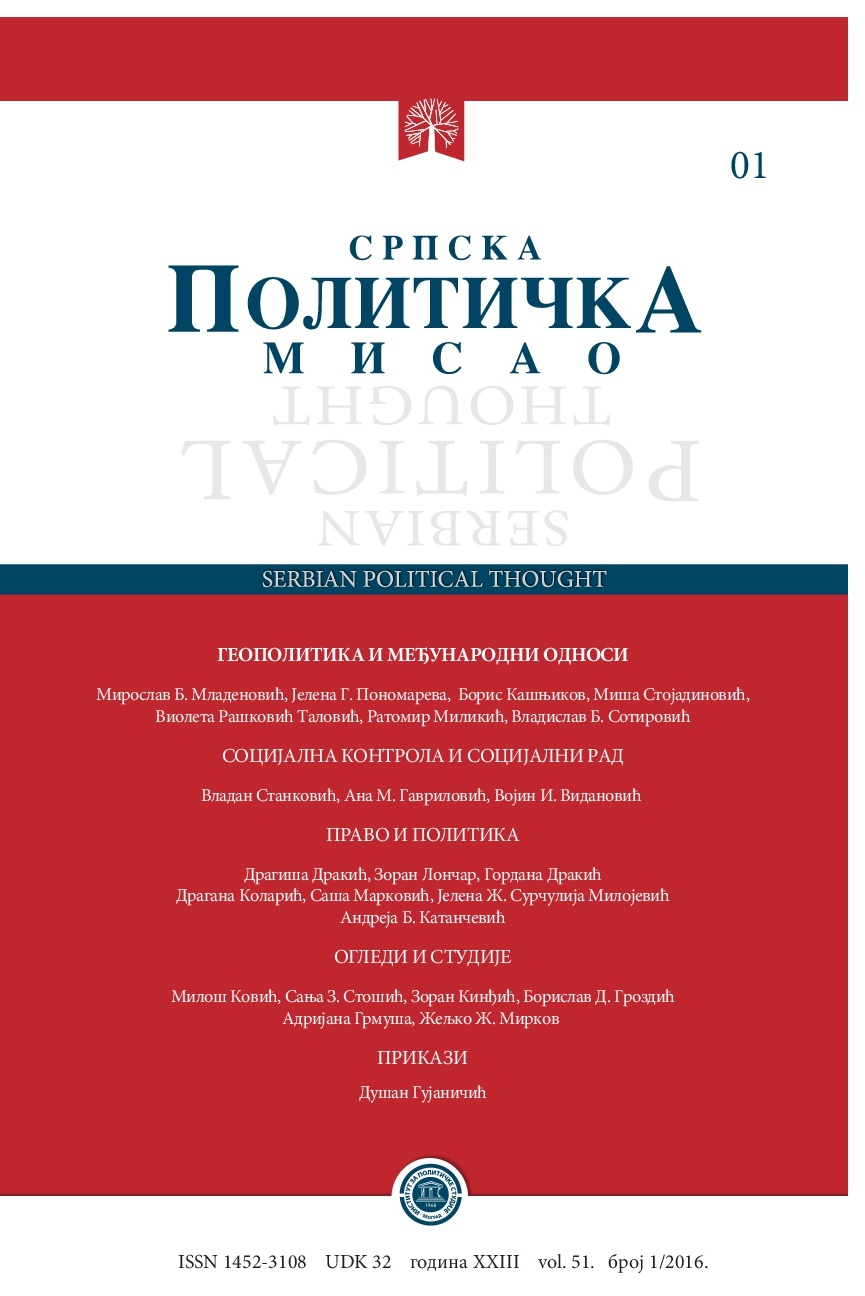Рат и духовност
War and Spirituality
Author(s): Zoran B. KinđićSubject(s): Politics, Military history, 19th Century Philosophy, Hermeneutics, Sociology of Religion, Ontology
Published by: Институт за политичке студије
Keywords: War; love; peace; ego; enemy;
Summary/Abstract: Confronted with tendency of extremely negative valuation of war, which fosters defeatistic mood in our environment, under the influence of western-oriented ideology, the author thematizes both war as such, as well as the relationship between war and spirituality. By using comparative and hermeneutical method, he considers different viewpoints on war in philosophy, Far Eastern religions and Christianity. Having briefly exposed the attitudes on war by several great philosophers, the author emphasizes that they are very different. While Hegel and Nietzsche have positive valuation of war, especially in ontological sense, Kant accurses war as root of all evil. Despite his promotion, as an ethicist, of eternal peace, as an anthropologist and philosopher of history, Kant shows understanding for war. Not only does he emphasize that a warrior, being ready to make sacrifice for the community, has higher reputation than a merchant, motivated by his selfish interest, he also considers that providence uses war as means for establishing eternal peace. Although one might expect that Far Eastern religions, that insist on spiritual attitude of ahimsa, have an extremely negative viewpoint on war, using the example of Bhagavad Gita, the author demonstrates that it is yet not the case. Krishna persuades Arjuna, preoccupied by pacifistic mood, that the duty of a member of the martial caste is to take part in war. War does not befoul warrior who is not filled with rage and hatred, while cowardice does disqualify him morally. Karma yoga teaches that karma is not created by doing without a doer, hence noble warfare does not represent something negative. Samurais who practiced zen Buddhism show that spirituality and warriorship are not mutually exclusive, but the contrary – that they are mutually strengthening. While warrior mastery supported developing concentration, meditative practice supported overcoming ones ego. The goal of the Far Eastern spiritual practice is dissolving oneself in the activity that we perform, whether it is meditation, dance or fencing. A superb swordsman is the one who overcame a subject-object relationship, a sphere of duality. He does not fear death, does not think about the opponent`s moves, but, letting himself to fluid course of nature, reacts spontaneously. The fact that many monasteries in China and Japan had their army, shows that spirituality in the East was not in opposition to warriorship. Christians’ attitude towards war is not collective. Range of possible attitudes starts from calling to a holy war, through justification of righteous war, permission for defensive war, to pacifistic refusal of any kind of war. Between the extremes of Roman Catholic calling to a holy war and advocating absolute pacifism by certain protestant communities, there is an Orthodox Christian attitude, best formulated by Saint Cyril in his response to Saracens` objection that Christians betray Christ by being involved in war. A Christian has the right not to confront his oppressor. However, if there is a community being jeopardized, he is bound to show resistance. If he would fail to do that, he would disregard love for his neighbours because of his abstract individual relationship with God. Undecayed relics of Saint Alexander Nevsky and Saint Prince Lazarus show that, despite their involvement in shedding blood of their enemy, they found grace before Lord. Despite the fact that Orthodoxy allows war as a necessary evil, it does apply epitimia for those who participated in war. Having compared Far Eastern and Christian attitudes on war, the author concludes that righteous participation in war, motivated by self-sacrificing love for ones` neighbour, can be more positive than tepid, especially egocentric participation in peace campaigns. Those who establish peace in their soul make greater contribution to peace than those who advocate it outwardly, politically. Unlike those who are proclaiming peace by words, while being filled with unrest on the inside, true peacemakers can only be spiritual people, even when they are forced to participate in war.
Journal: Српска политичка мисао
- Issue Year: 2016
- Issue No: 1
- Page Range: 279-306
- Page Count: 28
- Language: Serbian

